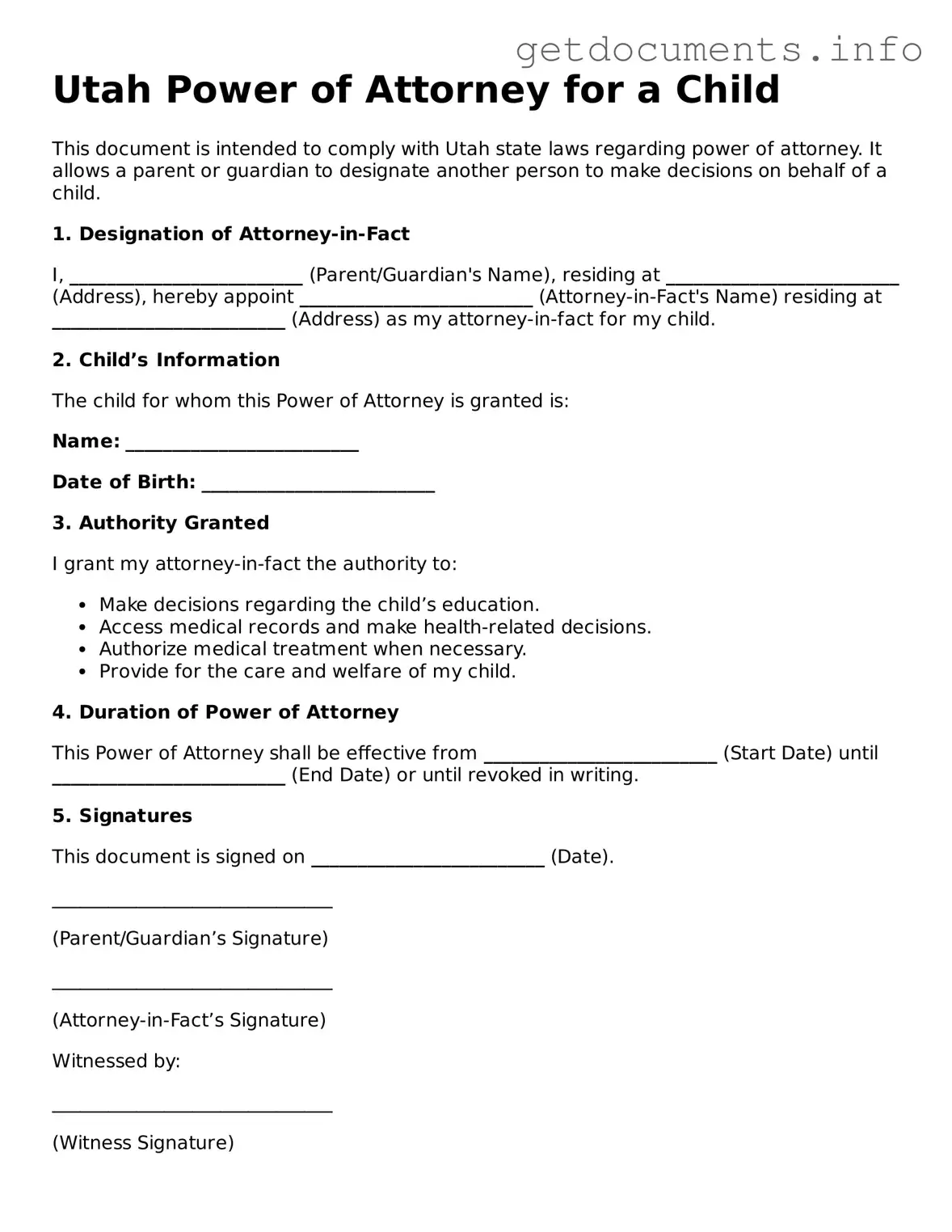Free Power of Attorney for a Child Template for Utah
The Utah Power of Attorney for a Child form allows a parent or guardian to designate another individual to make decisions on behalf of their child. This legal document is essential for ensuring that a trusted person can step in to care for your child when you are unavailable. To get started, fill out the form by clicking the button below.
Access Power of Attorney for a Child Editor

Free Power of Attorney for a Child Template for Utah
Access Power of Attorney for a Child Editor
Got places to be? Complete the form fast
Fill out Power of Attorney for a Child online and avoid printing or scanning.
Access Power of Attorney for a Child Editor
or
⇩ PDF File
